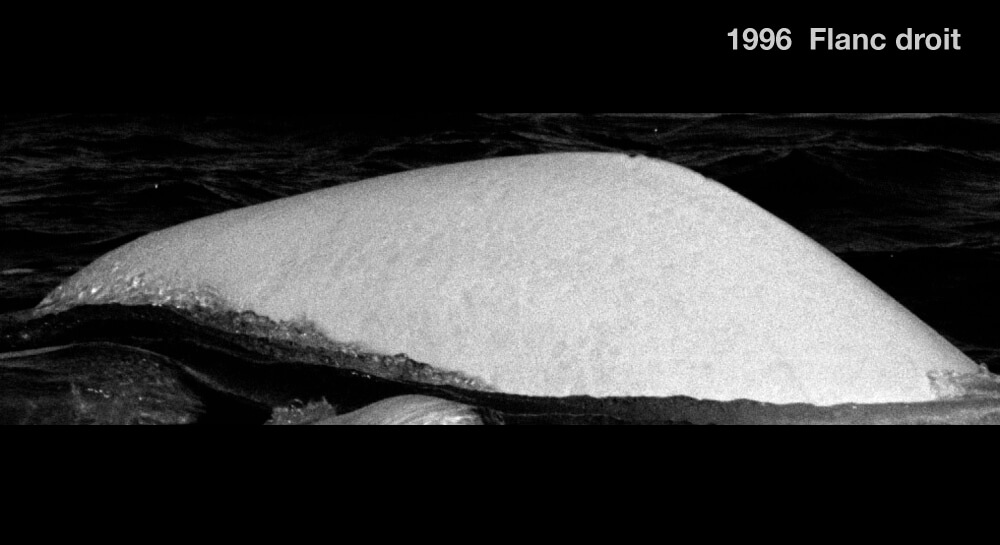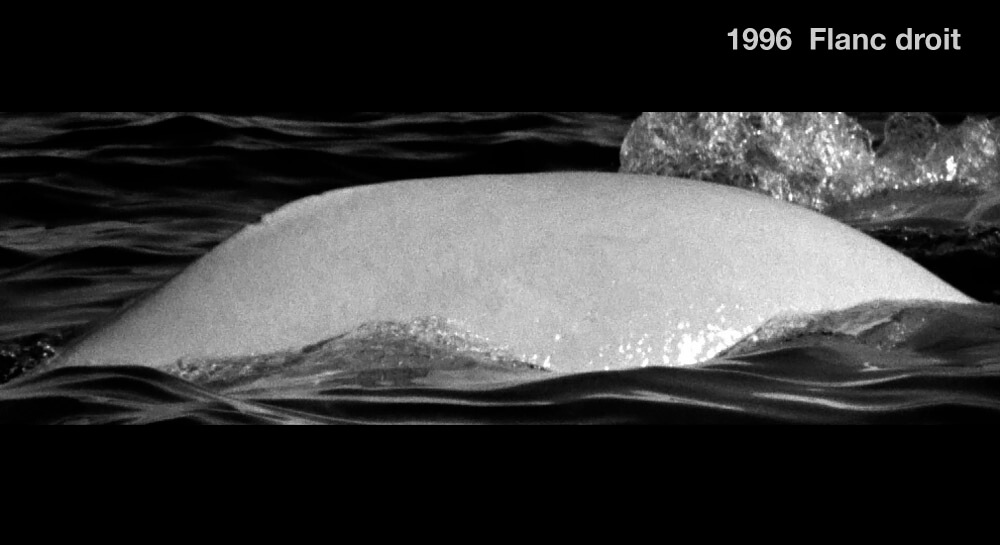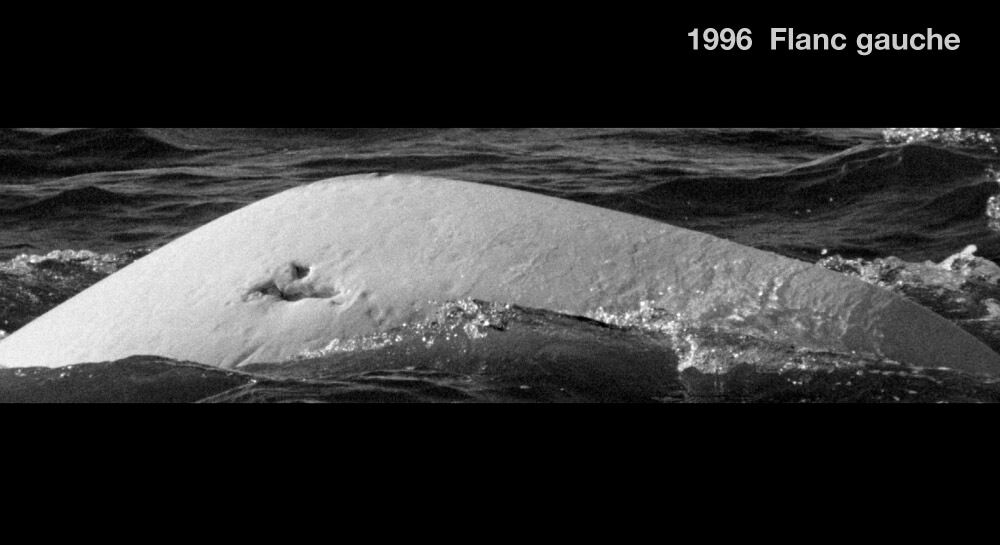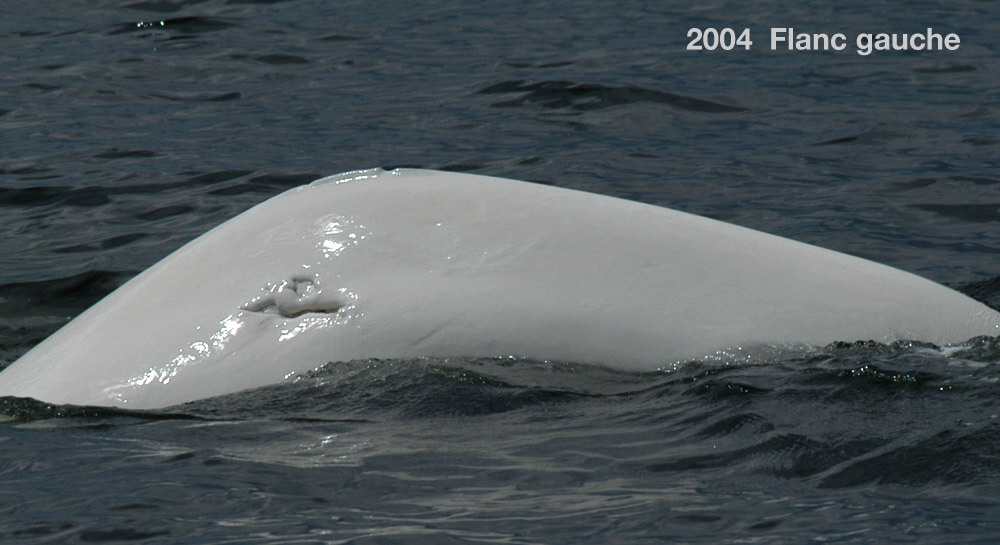Sea-P
Beluga

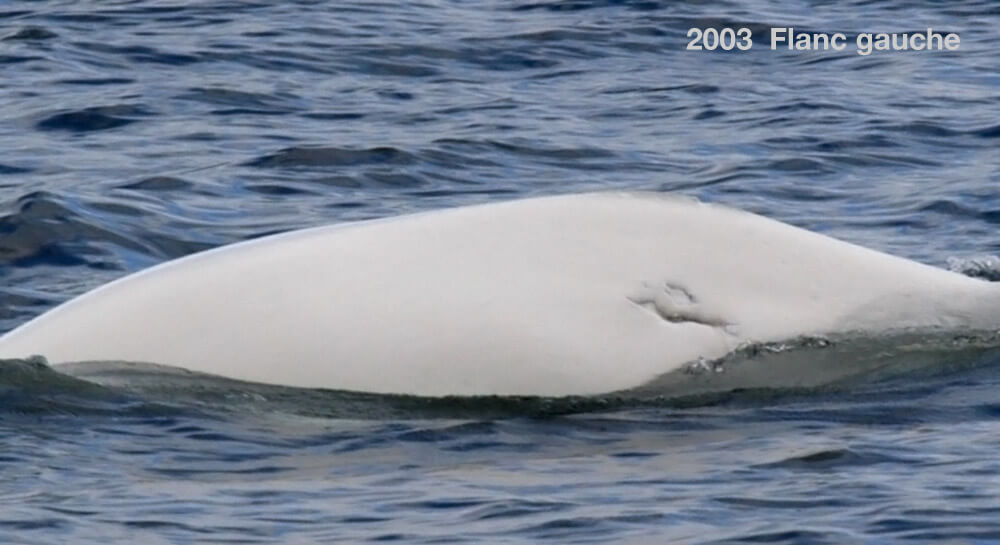
Adopted by Canadian Pacific Charitable Foundation, CP Foundation
-
ID number
DL0210
-
Sex
Female
-
Year of birth
Around 1981
-
Known Since
1992
Distinctive traits
It’s much easier to recognize Sea-P from the left flank, with her deep, irregularly contoured scars at the bottom of the dorsal crest. Her crest, on the other hand, contains two small, well-marked indentations.
Life history
We first met Sea-P in 1992. She was slightly gray. Then, in 1995, she became almost perfectly white. Sea-P was born around 1981.
Her small size and the presence of a newborn alongside Sea-P indicate that she is a female from the Saguenay community.
In summer, females and males occupy different territories. Females and juveniles mainly use the upstream part of the estuary, where they form three communities. Sea-P particularly frequents the mouth of the Saguenay. She is therefore part of the Saguenay community. She has become an expert on the fjord. Thanks to her in-depth knowledge of the environment and her highly effective hunting strategies, she spends little time looking for food, instead devoting her time to travelling, resting and socializing.
Observations history in the Estuary
Years in which the animal was not observed Years in which the animal was observed
Latest news
We observe Sea-P in a herd of around 30 individuals, made up of adults and calves, off Tadoussac, near Pointe Rouge. We try to place a VHF radio tag on the side of a beluga. Unfortunately, we don’t succeed, as the suction cup doesn’t stick to the animal’s skin. The herd is hard to follow, as the animals are directly in the sun’s reflection. Finally, we manage to place a tag on a large, slightly gray individual, possibly a young adult. We hope our tag will hold for a while, so we can get some interesting data!
Sea-P was last seen over a decade ago. Is she dead? Has she remained invisible all this time? One thing’s for sure, her story remains a valuable source of information, helping us to better understand this fragile population.
Sponsor
Canadian Pacific Charitable Foundation, CP Foundation adopted Sea-P (1997).

